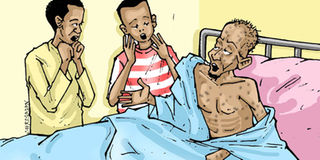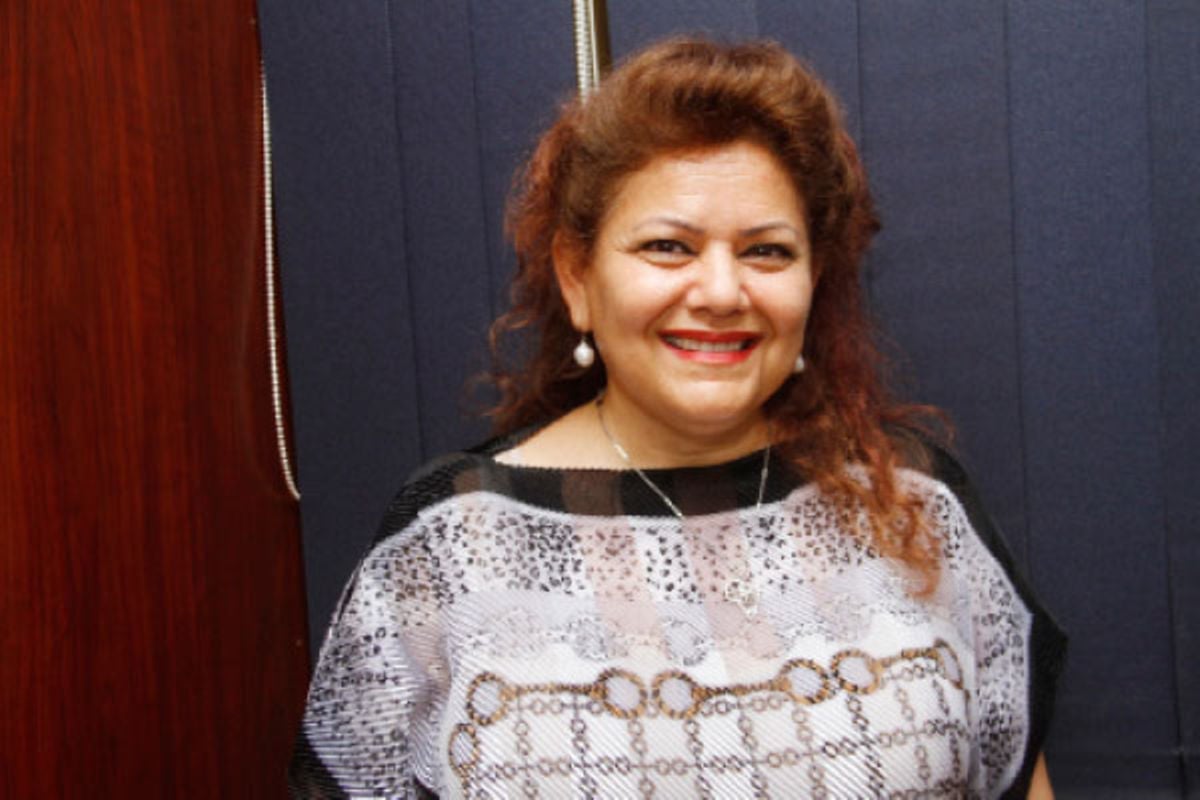Prime
How do you tell your children you’re dying?

Arthur 16, and his brother Patrick 12, (not real names) discovered that their mother was HIV positive unexpectedly. For Arthur, it was through an unplanned for conversation with her, while for Patrick, it was through his brother.
After a life of hardship, and more than 10 years of being looked after by the only parent they had, it seemed like life had dealt them a heavy blow. Finally, the source of their mother’s on and off sickness and mood swings became clear. They lived in denial at first, then it sunk in, and each of them dealt with it his own way.
This is not something they plan to confront her about, but like a cancer, it worries and scares them that their beloved mother will soon depart too, for it is already a miracle that she is still alive.
Like Arthur and Patrick’s mother, several parents have contemplated whether or not to tell their children about terminal illnesses, while others assume that somehow the children will find out. However, Barbra Maureen Kalumba, a child counsellor at Mildmay Centre, encourages parents to disclose to their children the terminal illnesses because they can handle it.
Most parents, however, consider disclosure a challenge because of the following concerns.
When to disclose
Parents wonder as to when they should disclose this information. How will the children take it? When is the time right for this? And their panic is valid because it is traumatising for children to learn that one or both of their parents could die.
However, Kalumba says to avoid all this confusion, it is best to talk to children about a terminal illness shortly after diagnosis.
How to disclose a terminal illness
Kalumba points out that the time for disclosure is important, therefore, parents should set a date.
“For example, she could take the whole family out and as they have a nice time, she starts with questions to the children of how they feel about their parent and child relationship,” she shares.
Another way, Kalumba suggests, is for parents to approach the issue by posing questions like, “‘When was the last time daddy fell sick?’ As the children respond, the parent can continue with, ‘Well daddy went to see a doctor, some tests were done and it was discovered he has cancer’.”
After the children’s response to this, Kalumba suggests the parent should reassure them that he or she is undergoing treatment but there is a probability of recovery or death.
“For a parent with a terminal illness like cancer, children should be informed that the treatment they are undergoing might make them very weak, lose their hair and even reach a point of not being able to work,” says Kalumba. This, she says, would prepare them for what is to come.
Apart from affirming their love and requesting their children to pray for them, parents should use that opportunity to tell them a name of a relative or friend who will take care of them when the illness gets worse or when the parent dies.
“For assurance of this, the party talked about as the caretaker, should be present when disclosure is made,” suggests Kalumba. She cautions parents not to give children too much information for example, describing how the cancer will eat into the brain, because this would scare them.
Why disclose
Although most African societies are strongly bent on protecting children from grieving their parents, Kalumba differs saying talking to children about a terminal illness enables them to walk with the parent through the journey of treatment towards recovery or death.
“By the time the parent passes on, the question of, ‘how did my father or mother die’ is already answered and it is now a question of how could God let this happen,” she adds.
The aftermath
Since we react differently to situations, Kalumba states that children will most definitely have different reactions towards a parent’s terminal illness. “Some children withdraw and go quiet, some might have no reaction, some break down and cry saying, ‘No mummy you are going to be fine’,” she adds.
Some children may even run away for fear of seeing their parent in pain or die while others stick to denial while others depending on age, pick up habits.
When it comes to picking habits, Kalumba says a seven-year-old might play sick or wet their bed just to get attention from the sick parent. An adolescent on the other hand might pick on alcohol or even look for love in the wrong places or avoid the ill parent.
Dealing with the disclosure
“Parents usually label their children rebellious, at times verbally abusing them without considering this is how the child deals with this information,” states Kalumba. However, she adds that disclosure does not lessen a parent’s authority over their child.
Therefore, a parent should rebuke, confront and talk to their child about bad behaviour like getting into fights or coming home late.
On the other hand, children usually feel sorry for their ill parents, take on responsibilities such as house chores eventually taking on the parenting role in the home. To avoid this, Kalumba advises the ill parent, if possible to carry on with their prior responsibilities only letting the child help with some of the work. “Allow them to be children and assure them you’ll be fine,” she concludes.
Talking to children about death
Here are tips that may help you and your dying loved one confront the reality of your circumstances.
• It can be helpful to first ask the child what they understand about what’s been happening. From this starting point, you can gently correct any misunderstandings and gradually tell them about the current situation.
•Use straightforward language, which includes saying the words ‘dying‘ or ‘died‘, when you tell young children about death.
•Young children often need to be reassured that they’re not responsible for someone’s death, as they can often find reasons to blame themselves.
•Children need to have gradual explanations about what has happened and why, and what may happen next.
• Children also need to know that it’s okay to talk about you not getting better. They might try to protect you by not talking, so it’s important to let them know they don’t have to do this.
• Children often have worries about who will care for them if you’re no longer there. It can help to talk to them about this and reassure them that they’ll always be cared for.
macmillian.org.uk




